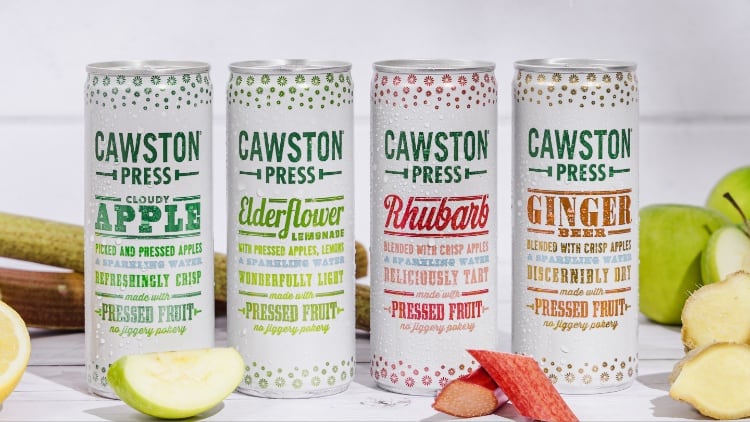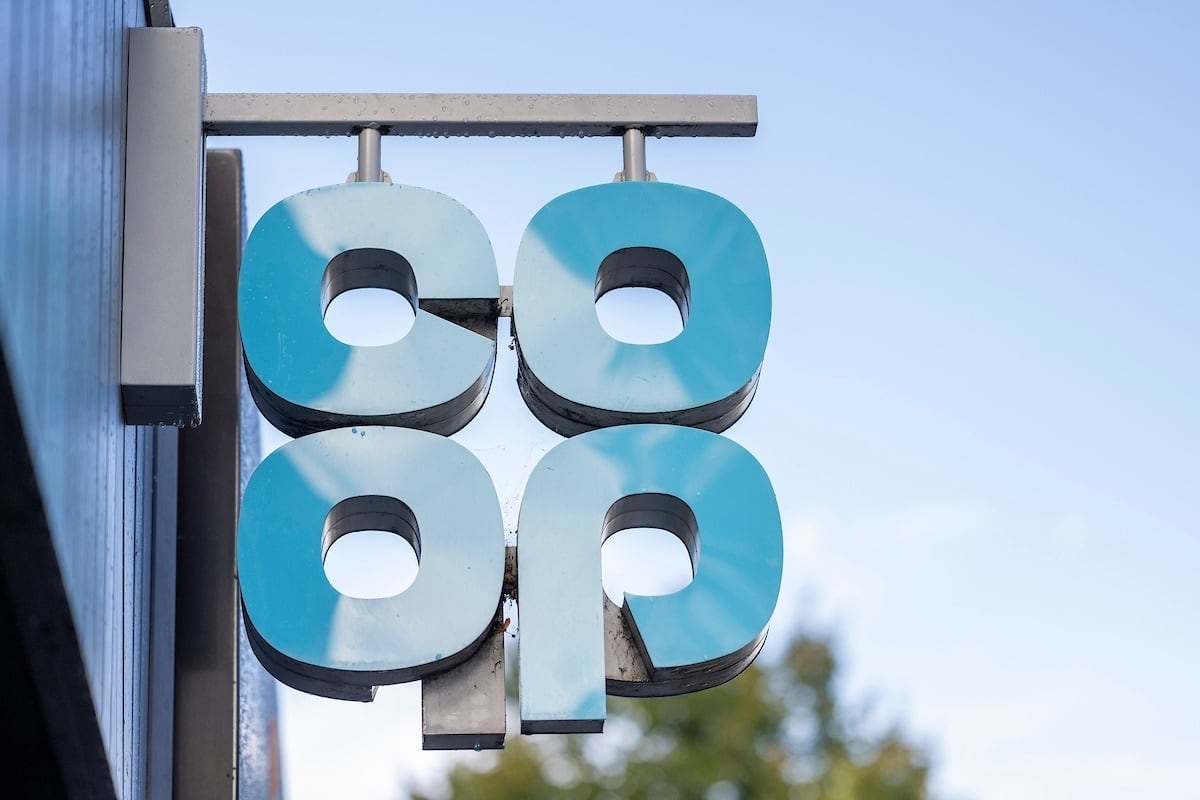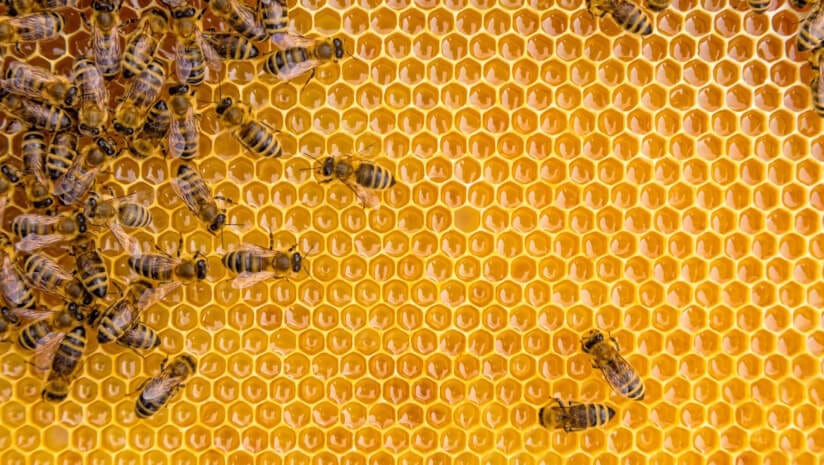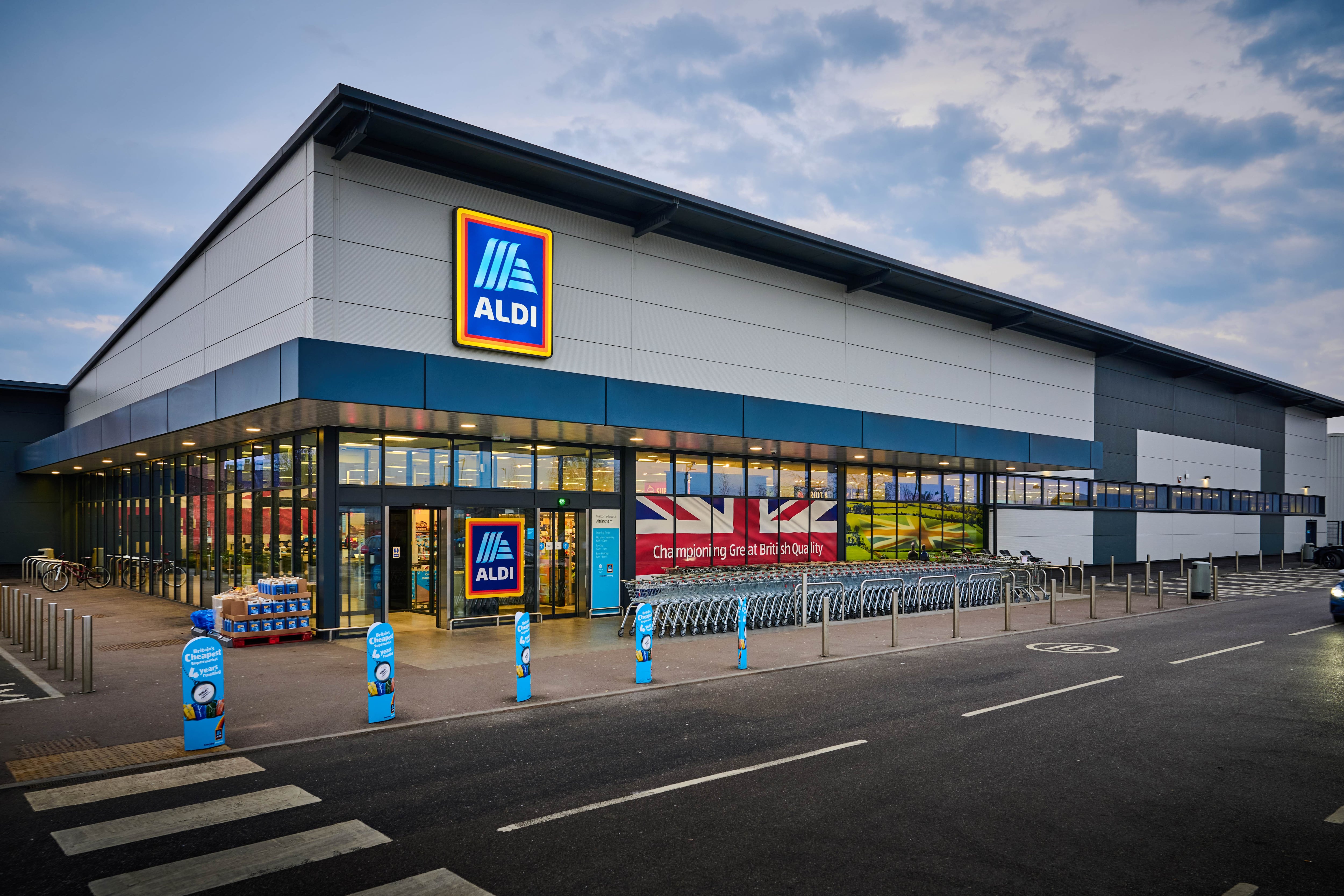Company address: 27a Harper Road, London SE1 6AW
Number of employees: 32
Size of site: 1,500 square feet
Known for its ranges of sparkling and still soft drinks made with real pressed fruit, Cawston Press has become a household name in the beverage sector with its products available in major supermarkets, pubs, restaurants and hotels across the UK.
This journey started out with “a love for apples” and has since evolved into a dynamic business headquartered in central London. However, it remains committed to the values that were central to its foundation, a fact that was reflected when the brand secured B Corp certification in February 2024.
Steve Kearns joined the business in 2015 as managing director, supporting co-owners Mark Palmer and Stephen Unwin in taking the business to the next level. Kearns had spent 15 years at Unilever in a variety of roles over two separate stints after starting on the graduate scheme, while he also worked as the general manager at rugby club Rosslyn Park for more than four years.
Asked what inspired him to leave his role in Unilever to join the comparatively small Cawston Press, Kearns explained that he was impressed with the firm’s ethos and purpose.
“I was really excited by the role when it emerged and felt that my experience with Rosslyn Park and also running the out-of-home ice cream division at Unilever meant I was really well suited to what Cawston Press was looking for,” he told Food Manufacture.
“I come from an entrepreneurial background and I think this instilled an underdog mentality that made me want to try and take on the big brands and challenge big soda.”
While some may have seen Kearns’ decision to make the move as a risk, nine years on he insists he has no regrets.
“Working with a great group of people and growing a small brand has been incredibly fulfilling,” he added.
The manufacturing process at Cawston Press is entirely outsourced, but the brand owns all the recipes and IP. Its in-house team is therefore constantly involved in blending juices and coming up with new flavours, which once signed off, are then produced at scale by its manufacturing partners across the UK.
“We work with three different manufacturing sites and have a team of 30 based out of London Bridge running the day-to-day operation,” Kearns explained.
Becoming Cawston Press
Founded in 1986 as Cawston Vale, the company rebranded as Cawston Press in 2009 in order to bring the “process into the brand name”.
“All of our products are made with not-from-concentrate pressed juices, and that was the point of lift off for the brand,” Kearns said.
“Cawston Press has always stuck to the core principle of ‘No Jiggery Pokery’ and our commitment to taking no shortcuts continues to set us apart from the industry to this day.”
Initially the 1L fruit juice cartons gained popularity among shoppers in delis and farm shops, and were followed in 2013 with the launch of the 200ml fruit water cartons and its first 330ml sparkling can flavour the year after that.
Finally, the arrival of Kearns in 2015 was shortly after the launch of the rhubarb sparkling can, a flavour that has helped Cawston Press grow in prominence and attract new customers to the brand.
“We launched our hero flavour Sparkling Rhubarb in 2014, and it is the drink that we have become best known for,” Kearns explained.
“It is loved by so many because of its high-quality taste and distinctive flavour, which meant that it really stood out in the sparkling soft drink category.”
In addition to the Sparkling Rhubarb flavours, the sparkling cans range includes flavours such as Ginger Beer, Cloudy Apple, Elderflower Lemonade, Orange and Cloudy Lemonade. The range has become a mainstay on the shelves of supermarkets, while its juices enable Cawston Press to appeal to consumers of all ages.
“We have a developed range of delicious soft drinks for all occasions,” Kearns added.
“I think that we have reached a point where we are serving all occasions and times of day, which is so important.”
This versatility was reflected in the ‘Just add Cawston’ campaign that ran for a few years between 2015 and 2020, which urged consumers to explore all the different ways that the brand’s products could be used.
“Our tomato juice cartons could be used to make a Bloody Mary or in a pasta dish as passata,” Kearns said.
“Meanwhile, you can enjoy a sparkling can on a hot day or use it as a mixer. It’s up to you.”
Thinking differently
While Cawston Press is stocked by major retailers, including Tesco, Sainsbury’s, Co-op and Asda, it was initially independent cafes, sandwich shops and convenience stores that took a chance on its Sparkling Can Range.
“With the Sparkling Rhubarb, smaller cafes and stores in and around London and other hot spots like Brighton started stocking it before the supermarkets came on board,” Kearns said.
“Today, our customer base is split 50:50 between grocery and hospitality, with independent retailers remaining really important to us. We also continue to develop a small direct-to-consumer presence which we have found is important for direct connection with the people that love the brand. It provides a lovely balance.”
While Cawston Press’ traditional flavours would have been well known to buyers at major supermarkets, it took a little longer for them to get on board with the rhubarb flavour. Despite this, it is not only the brand’s best-selling sparkling can flavour (and has been since its launch), it’s the best-selling Cawston Press product.
“Waitrose was one of the first supermarkets to stock the Sparkling Rhubarb and has been a loyal customer since,” continued Kearns.
“When we launched the flavour it was seen as unusual by some people, but we wanted to stand out and be different.”
Flavours like lemon and apple are commonly associated with sparkling soft drinks, but at the time rhubarb was more often associated with yoghurts or desserts. This left Cawston Press with the task of convincing consumers and drinks buyers to just give it a try.
“We had to entice people to buy the drink initially, but when they tried it, they wanted to buy it again,” explained Kearns.
“A decade later, we are now the No.1 brand in Rhubarb, with 84% market share according to NIQ, despite a number of competitors having now entered the space.”
Despite this success, the NPD team at Cawston Press has refused to remain static and is constantly looking at ways to improve recipes and meet the changing tastes of consumers.
“Over the years we have had to develop our Sparkling Rhubarb recipe, we found tastes started to change and people wanted something slightly less sweet, so had to temper the recipe to balance the sweetness,” Kearns said.
“We are proud to say that this recipe has no added sugar, with the sweetness coming from the pressed fruit, just as nature intended.”
Facing up to big soda
The soft drinks space is dominated by a few big players, but is also made up of numerous challenger brands trying to plough their own furrow.
“Never before have we seen so much choice, ranging from functional and energy drinks to better-for-you options and no and low alcohol,” Kearns said.
“These options are continuing to proliferate and of course there will be winners and losers, but it is really vibrant right now.”
While these brands have been successful in appealing to customers, the challenges of rising costs and reduced consumer confidence hit them harder than the bigger players that have operations stretching across the globe.
“Every year we are hearing about climate change impacting fresh produce and this is putting global supply chains under immense pressure,” continued Kearns.
“Look at the price of coffee for example, which has spiked in just a couple of years. I think we will reach a point where people start to make stark choices, so for a premium brand like us, we need to ensure we continue to stand out. But with our great taste and clean ingredients, I think we are well placed.”
Regulation on soft drinks is another area that could shake up the sector, both as it relates to the contents of drinks but also to the packaging they are sold in.
“There is a lot of uncertainty at the moment and this is especially difficult for smaller businesses,” Kearns said.
“This has always been the case though, so we will continue to adapt and follow the advice that is out there.”
Despite these challenges, Kearns remains ambitious. The brand has established itself in the categories where it currently has a presence, but the team is always looking to the next opportunity.
“One of the Cawston Press values is ‘Be Curious’ and this is driving our NPD and innovation process,” he added.
“We are always asking where else we can go and what else we can do, both from a product perspective and also a planet perspective. I want us to do more whether that is getting more ingredients from the UK or changing our packaging to make it more sustainable. Whatever it is, we aren’t going to stand still. We will continue pressing for better.”





